Covidien to Acquire Given Imaging, Developer of the PillCam
|
By HospiMedica International staff writers Posted on 09 Dec 2013 |
Covidien (Dublin, Ireland) will acquire all outstanding shares of Given Imaging (Yoqneam, Israel) for about USD 860 million or USD 30 per share in cash. The transaction provides Covidien the scale and scope to serve the multibillion-dollar global gastrointestinal market and supports Covidien’s strategy to address fundamental specialties and procedures with the addition of minimally invasive capsule endoscopy to its portfolio of offerings. The transaction subject to customary closing conditions, including Given Imaging shareholder approval, is expected to be completed by end of March 2014.
Given Imaging has one of the broadest technology platforms for visualizing, diagnosing, and monitoring the digestive system, including its flagship PillCam, a minimally-invasive, non-sedation, swallowed optical endoscopy technology for the small bowel, esophagus, and the colon that has helped over 1.5 million patients since its founding over a decade ago. The company’s portfolio includes seven product lines across 21 gastrointestinal (GI) disease states. The company also offers industry-leading GI functional diagnostic solutions including ManoScan high-resolution manometry, Bravo capsule-based pH monitoring, Digitrapper pH-Z monitoring, and SmartPill motility monitoring systems.
Bryan Hanson, group president, Medical Devices & US, Covidien said, “We believe GI is one of the most attractive specialty procedure areas. Acquiring Given will enable Covidien to significantly expand its presence in a USD 3 billion GI market. Adding Given’s portfolio of diagnostics to our portfolio accelerates Covidien’s strategy of providing physicians with products that support the patient along the care continuum from diagnosis to treatment. It also confirms our leadership in developing less-invasive screening, diagnosis and treatment solutions that can improve patient outcomes and lower healthcare costs.”
Homi Shamir, president and CEO, Given Imaging Ltd., said, “Given Imaging revolutionized GI diagnostics over 12 years ago with the launch of PillCam and created an entirely new diagnostic category—capsule endoscopy. The combination of Covidien’s established global presence and Given Imaging’s innovative capabilities has the potential to transform this market. “Commenting on the acquisition, he added, “After thoroughly evaluating our strategic options we determined that this transaction is in the best interests of Given Imaging, its shareholders and employees and provides unique benefits to patients globally.”
Related Links:
Covidien
Given Imaging
Given Imaging has one of the broadest technology platforms for visualizing, diagnosing, and monitoring the digestive system, including its flagship PillCam, a minimally-invasive, non-sedation, swallowed optical endoscopy technology for the small bowel, esophagus, and the colon that has helped over 1.5 million patients since its founding over a decade ago. The company’s portfolio includes seven product lines across 21 gastrointestinal (GI) disease states. The company also offers industry-leading GI functional diagnostic solutions including ManoScan high-resolution manometry, Bravo capsule-based pH monitoring, Digitrapper pH-Z monitoring, and SmartPill motility monitoring systems.
Bryan Hanson, group president, Medical Devices & US, Covidien said, “We believe GI is one of the most attractive specialty procedure areas. Acquiring Given will enable Covidien to significantly expand its presence in a USD 3 billion GI market. Adding Given’s portfolio of diagnostics to our portfolio accelerates Covidien’s strategy of providing physicians with products that support the patient along the care continuum from diagnosis to treatment. It also confirms our leadership in developing less-invasive screening, diagnosis and treatment solutions that can improve patient outcomes and lower healthcare costs.”
Homi Shamir, president and CEO, Given Imaging Ltd., said, “Given Imaging revolutionized GI diagnostics over 12 years ago with the launch of PillCam and created an entirely new diagnostic category—capsule endoscopy. The combination of Covidien’s established global presence and Given Imaging’s innovative capabilities has the potential to transform this market. “Commenting on the acquisition, he added, “After thoroughly evaluating our strategic options we determined that this transaction is in the best interests of Given Imaging, its shareholders and employees and provides unique benefits to patients globally.”
Related Links:
Covidien
Given Imaging
Latest Business News
- Philips and Masimo Partner to Advance Patient Monitoring Measurement Technologies
- B. Braun Acquires Digital Microsurgery Company True Digital Surgery
- CMEF 2025 to Promote Holistic and High-Quality Development of Medical and Health Industry
- Bayer and Broad Institute Extend Research Collaboration to Develop New Cardiovascular Therapies
- Medtronic Partners with Corsano to Expand Acute Care & Monitoring Portfolio in Europe
- Expanded Collaboration to Transform OR Technology Through AI and Automation
- Becton Dickinson to Spin Out Biosciences and Diagnostic Solutions Business
- Boston Scientific Acquires Medical Device Company SoniVie
- 2026 World Hospital Congress to be Held in Seoul
- Teleflex to Acquire BIOTRONIK’s Vascular Intervention Business
- Philips and Mass General Brigham Collaborate on Improving Patient Care with Live AI-Powered Insights
- Arab Health 2025 Celebrates Landmark 50th Edition
- Boston Scientific Acquires Medical Device Company Intera Oncology
- MEDICA 2024 to Highlight Hot Topics of MedTech Industry
- Start-Ups To Once Again Play Starring Role at MEDICA 2024
- Boston Scientific to Acquire AFib Ablation Company Cortex
Channels
Critical Care
view channel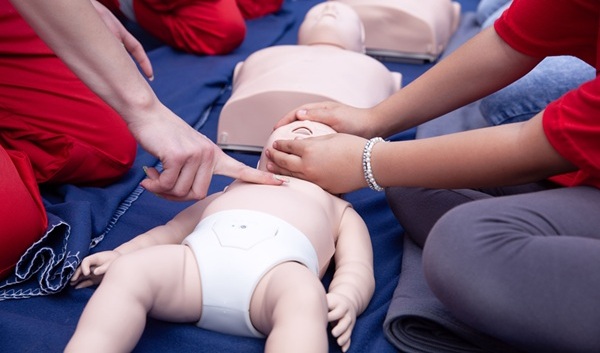
CPR Guidelines Updated for Pediatric and Neonatal Emergency Care and Resuscitation
Cardiac arrest in infants and children remains a leading cause of pediatric emergencies, with more than 7,000 out-of-hospital and 20,000 in-hospital cardiac arrests occurring annually in the United States.... Read more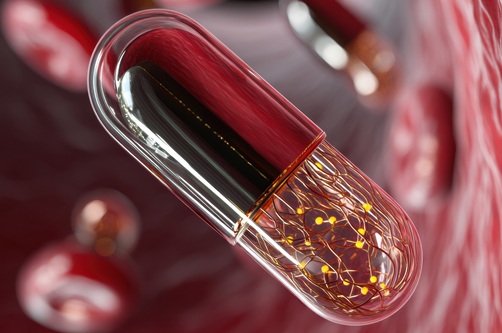
Ingestible Capsule Monitors Intestinal Inflammation
Acute mesenteric ischemia—a life-threatening condition caused by blocked blood flow to the intestines—remains difficult to diagnose early because its symptoms often mimic common digestive problems.... Read more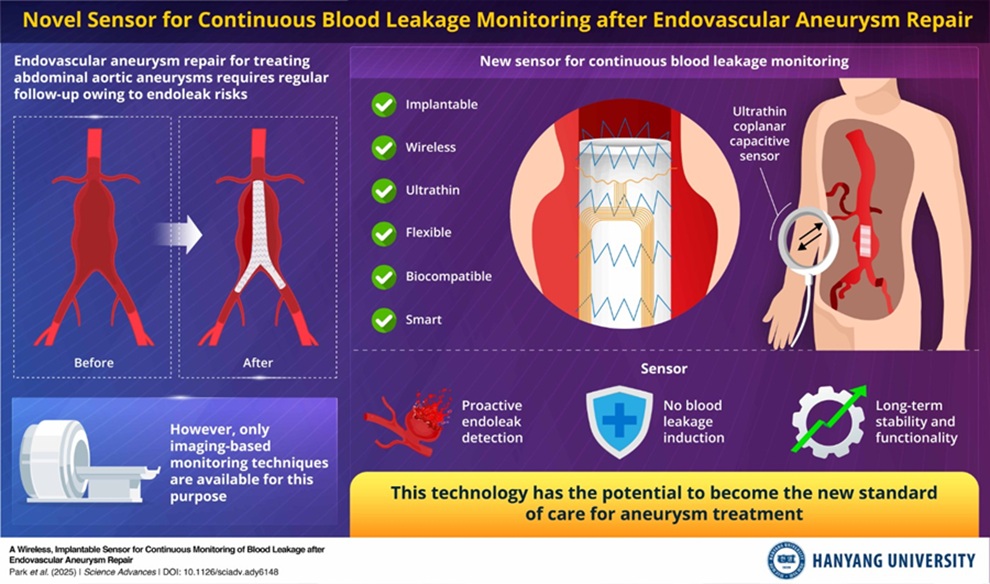
Wireless Implantable Sensor Enables Continuous Endoleak Monitoring
Endovascular aneurysm repair (EVAR) is a life-saving, minimally invasive treatment for abdominal aortic aneurysms—balloon-like bulges in the aorta that can rupture with fatal consequences.... Read more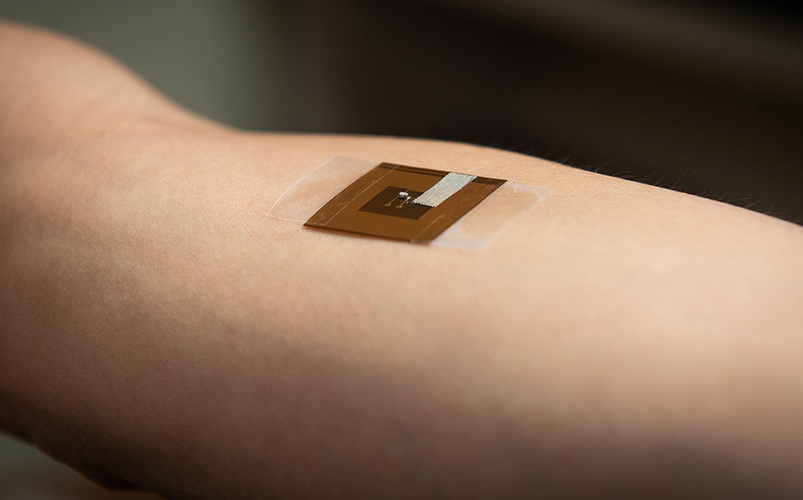
Wearable Patch for Early Skin Cancer Detection to Reduce Unnecessary Biopsies
Skin cancer remains one of the most dangerous and common cancers worldwide, with early detection crucial for improving survival rates. Traditional diagnostic methods—visual inspections, imaging, and biopsies—can... Read moreSurgical Techniques
view channel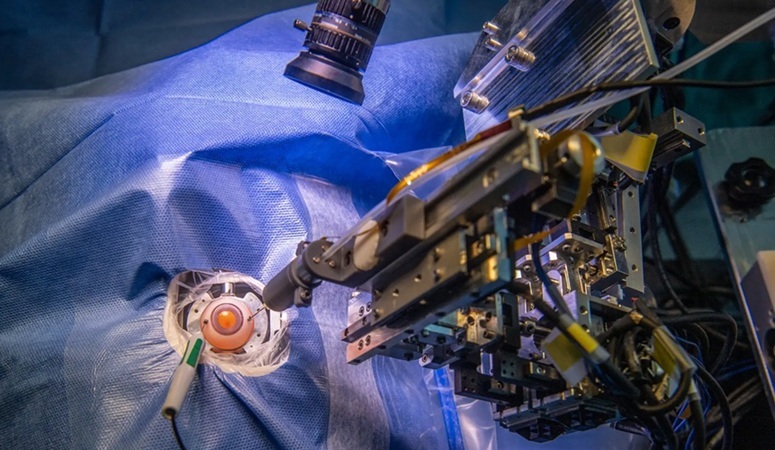
Robotic Assistant Delivers Ultra-Precision Injections with Rapid Setup Times
Age-related macular degeneration (AMD) is a leading cause of blindness worldwide, affecting nearly 200 million people, a figure expected to rise to 280 million by 2040. Current treatment involves doctors... Read more
Minimally Invasive Endoscopic Surgery Improves Severe Stroke Outcomes
Intracerebral hemorrhage, a type of stroke caused by bleeding deep within the brain, remains one of the most challenging neurological emergencies to treat. Accounting for about 15% of all strokes, it carries... Read morePatient Care
view channel
Revolutionary Automatic IV-Line Flushing Device to Enhance Infusion Care
More than 80% of in-hospital patients receive intravenous (IV) therapy. Every dose of IV medicine delivered in a small volume (<250 mL) infusion bag should be followed by subsequent flushing to ensure... Read more
VR Training Tool Combats Contamination of Portable Medical Equipment
Healthcare-associated infections (HAIs) impact one in every 31 patients, cause nearly 100,000 deaths each year, and cost USD 28.4 billion in direct medical expenses. Notably, up to 75% of these infections... Read more
Portable Biosensor Platform to Reduce Hospital-Acquired Infections
Approximately 4 million patients in the European Union acquire healthcare-associated infections (HAIs) or nosocomial infections each year, with around 37,000 deaths directly resulting from these infections,... Read moreFirst-Of-Its-Kind Portable Germicidal Light Technology Disinfects High-Touch Clinical Surfaces in Seconds
Reducing healthcare-acquired infections (HAIs) remains a pressing issue within global healthcare systems. In the United States alone, 1.7 million patients contract HAIs annually, leading to approximately... Read moreHealth IT
view channel








.jpg)




